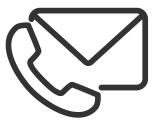∆ΩÃÿŒÂ≤ª÷–
European Commission: Horizon Europe
, the 9th European Union’s research framework programme, with a budget of close to EUR 100 billion over seven years (2021 to 2027) is the largest research and innovation funding programme in the world. The programme aims to drive scientific excellence, foster innovation, and address societal challenges by supporting collaborative research and innovation projects across various scientific disciplines and sectors. Canadian researchers are now eligible to apply for and receive Horizon Europe Pillar II funding:
¬ÝPillar I: Excellent Science
Investigator-driven initiatives in all research areas that give the scientific community a strong role in determining the avenues of research to be pursued:
- provide innovative research training as well as opportunities for cross-border and cross-sector mobility. The annual fund secondments of 1-2 years outside Europe (e.g. in Canada) for postdoctoral researchers with at least 4 years’ full-time research experience based in the EU (or an ) and a mandatory 1-year return period to a European host institution. Applicants must not have spent more than 12 months in the country of their future host organization within the last three years.
- The provides flexible funding to enable exceptionally talented and creative individuals, and their research teams, to pursue the most promising avenues at the frontier of science. The ERC annually awards to support collaborative research endeavors led by groups of 2-4 Principal Investigators. One of these investigators can be based outside of Europe. The grants aim to facilitate interdisciplinary collaboration, leveraging diverse skills and resources to address ambitious research challenges across any field. Synergy Grants can provide funding of up to €10 million over a period of 6 years. Funding amounts are adjusted proportionally for projects with shorter durations. The ERC also funds: ; , and . In these grants one or more team members can be located in a non-European country. However, Principal investigators are required to spend a minimum of 50% of their work time in an EU Member State or an . Research institutions in Canada may be eligible for funding from the grant if they host researchers who are part of the research team and essential to the project.
¬ÝPillar II: Global Challenges and European Industrial Competitiveness
Collaborative research and innovation projects responding to thematically specific calls for proposals within the following six clusters that address key societal challenges:
- (EUR 8.2 billion)
- (EUR 2.3 billion)
- (EUR 1.6 billion)
- (EUR 15.3 billion)
- (EUR 15.1 billion)
- (EUR 8.9 billion)
As of December 5, 2023, and researchers in Canada are able to participate in Pillar II calls for proposals on equal terms with researchers in the European Union and other , which means they are able to lead and join Horizon Europe project consortia in Pillar II and obtain funding directly from Horizon Europe.
How to participate in Pillar II
For each of the six thematic clusters, a , released every two years, sets out more detailed objectives. Multiple calls for proposals, each including detailed topics for research projects corresponding to these objectives, are released every year. The provides all Horizon Europe calls for proposal and their description, including an explanation of each specific research topic for which proposals are sought, and downloadable ‚Äúcall documents‚Äù including the relevant Work Programmes and other information for applicants. VPRI has prepared the following guide to assist researchers at navigating this portal.¬Ý
For most calls for proposals in Pillar II one must apply as a team of at least three partner organisations with at least one partner from an EU country and two partners from different EU or Associated Countries. See for additional information. Any legal entity is eligible to participate, but only entities that are registered in an EU member state, an , or a “low- or middle-income country” are eligible to receive funding ().
Each programme has its own selection criteria and evaluation process that is detailed in each call for proposals. Proposals are reviewed by external experts who are appointed by the European Commission (for more details, see: ). Funds are awarded based on merit. For more information, please consult the
How to find suitable research partners
- Connect with your European contacts
- Consult the European Commission’s
- Participate in the and
- Reach out to the (NCPs), who are groups of individuals, chosen by national authorities to provide information and assistance to researchers in their country regarding all aspects of the Framework Programme. They play an active role in building trans-national partnerships and preparing proposals
Addtional resources
Applications to this program are complex, and require intensive planning. The following resources can help guide researchers at preparing their submissions.
- Office of Sponsored Research
- Innovation, Science and Economic Development Canada (ISED)
- European Commission
Office of Sponsored Research
There are a number of presentations available to ∆ΩÃÿŒÂ≤ª÷– researchers on the following page (restricted).

